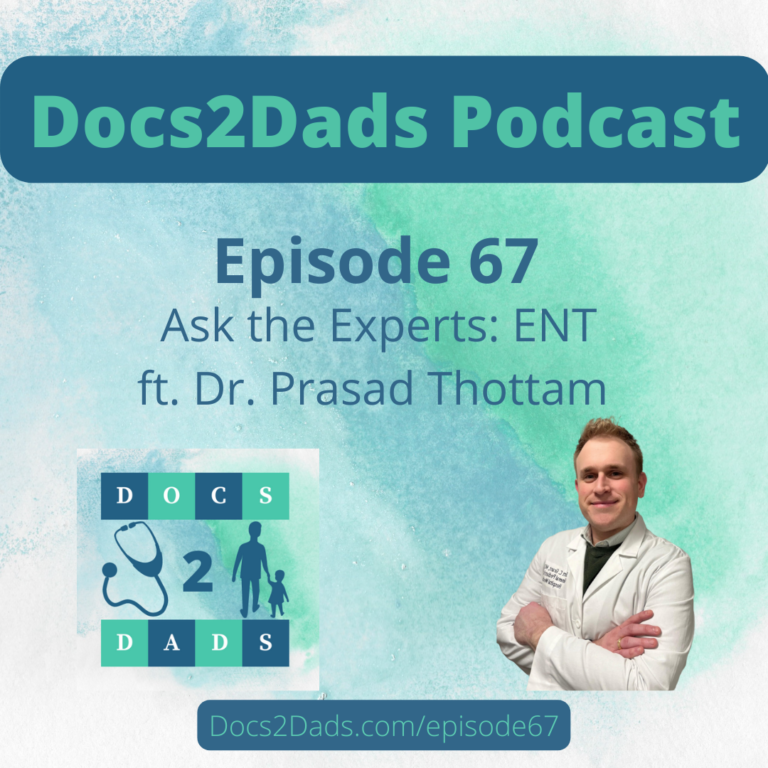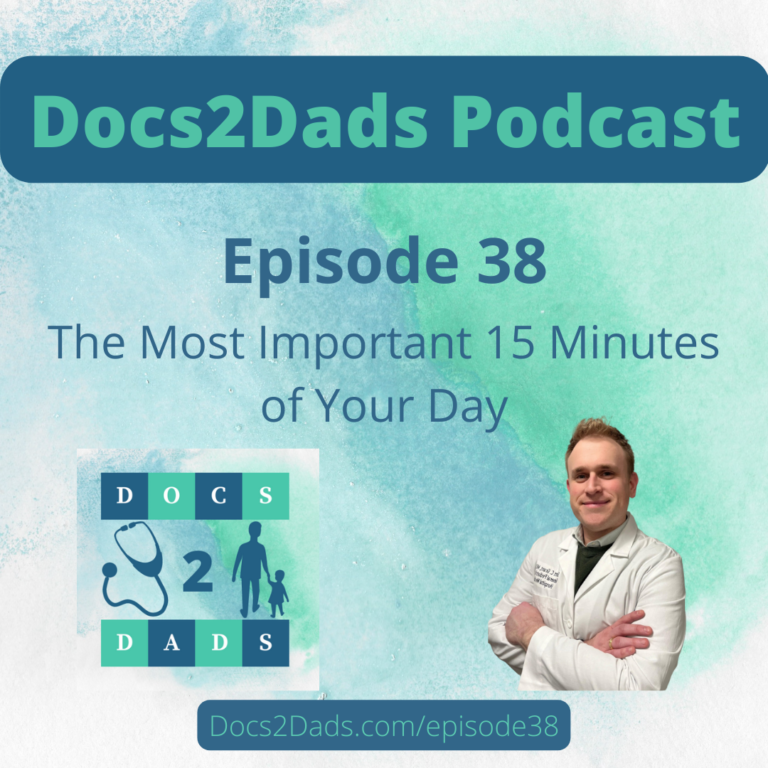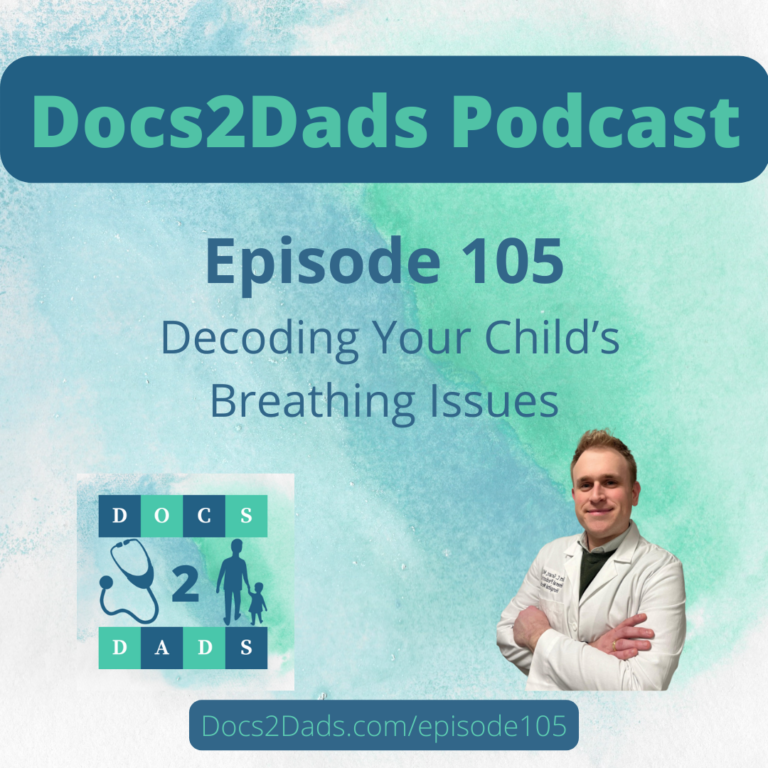As a pediatrician and a dad, I understand the challenges and pressures that come with parenting. In our quest to raise well-behaved and independent children, we often turn to common parenting advice.
I was even trained to GIVE this advice.
This week on the Docs2Dads podcast, I did a full review of Dr. Becky Kennedy’s hot new parenting book ‘Good Inside’ and that got me thinking about some of the common advice pediatricians give that parents report doesn’t feel ‘Good Inside.’
Blog Reader: You can get a bite-sized copy of my weekly blog directly in your inbox at docs2dads.com/newsletter
Some common behavior advice given by pediatricians and child health experts may inadvertently undermine the vital connection between parent and child. In this blog post, I want to shed light on three common parenting situations where parents tell me the traditional advice doesn’t feel right to them, or at least not for all of their kids. I propose alternative approaches that prioritize connection and emotional well-being that have worked for my kids and patients.
Time outs: Building bridges, not walls
The traditional use of time-outs as a disciplinary measure may create distance between parent and child. Kids learn that when their emotions get too big for them to handle, they are too big for the parents too. This will teach them to hold these emotions inside until they explode – rather than regulate tough emotions.
Alternative Approach: Time-ins for connection and guidance
Rather than isolating your child, offer a time-in. Sit together, validate their emotions, and help them understand what they’re feeling.
This approach fosters connection and provides an opportunity for guidance, teaching emotional regulation skills, and strengthening the parent-child bond.
In more extreme cases, you may need to move them to a safe place to ensure they don’t harm themselves or others, but you want to be with them in those tough moments.
I call this ‘Attentive Non-Intervention’ – Just sit WITH them until they are ready to settle and reconnect. Then you can process the emotions with them.
Temper Tantrums: Connection over Compliance
Ignoring temper tantrums may be tempting, but it can diminish the child’s sense of emotional security. This is common advice given by pediatricians and child health experts to help kids ‘learn’ that these behaviors do not achieve their desired outcome, but it actually teaches them that need to use bigger tactics to get your attention.
Alternative Approach: Acknowledge and validate emotions
When faced with a temper tantrum, remember that your child is expressing their frustration, sadness, or anger. Instead of ignoring or dismissing their emotions, validate them. If the tantrum is in response to a decision you made, you don’t have to change that decision.
Dr. Kennedy gives a great script for this in the book. “It’s ok for you to be upset, but we are not going to watch TV before bed.” You can offer comfort, empathize, and still hold your position as the parent. By acknowledging their emotions, you help them develop emotional intelligence.
Cry-It-Out sleep training: Prioritizing Comfort & Attachment
Cry-it-out sleep training methods have been popularized, but they may disrupt the parent-child bond and hinder emotional well-being. This one feels bad to some parents who struggle with not responding to their child’s distress.
Alternative Approach: Responsive sleep training
Responsive sleep training recognizes that babies need comfort, security, and nurturing during their sleep routine. Instead of leaving your child to cry it out, respond to their needs promptly. This approach prioritizes the attachment between parent and child, promoting a sense of safety and trust. My friend and fellow Instagram pediatrician @philbouchermd likes to call this camping. You start by sitting or laying with your child so that you can do the booty-tap or back rub to help them fall asleep and then slowly move further and further away as kids get older and more comfortable with the nighttime routine.
Parenting Can Feel ‘Good’
As a dad, your primary goal is to foster a deep and meaningful connection with your children. While common parenting advice may offer quick fixes, they may inadvertently compromise this vital bond and prioritize compliance over connection.
By rethinking your approach to discipline, tantrums, and sleep training, you can create an environment of trust, empathy, and emotional well-being for your children. You can prioritize connection, understanding, and responsiveness, shaping a future where your children feel deeply connected and supported.
If you have more questions about parenting advice that you have received or how to parent in a way that recognized the inherent dignity of the child and the parent
Connect with me at one of the Social Media Links below!!
Our community is here to help you: 💪up your game as a JOY-FILLED dad 👨👩👧👦 be the leader your family needs you to be ❤️🩹build a happier, healthier life for yourself, your family, and your community.
Follow Docs2Dads for more #parenting content from a #pediatrician living the #dadlife – transforming #evidencebasedmedicine into practical #parentingtips
Linkedin: https://www.linkedin.com/in/drscottpeds
Instagram: https://www.instagram.com/docs2dadspod
Email: docs2dadspod@gmail.com
Facebook: https://www.facebook.com/docs2dadspod
The content on this blog is for your education and entertainment only. It should not be considered medical advice and should not replace a relationship with a primary care doctor. You should seek medical attention if you are worried about your child’s health.










